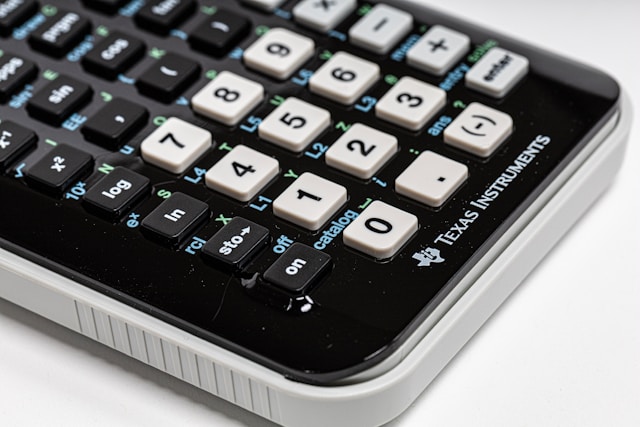Whether you have negotiated several business leases before or are completely new to commercial property leasing, estimating how much a commercial lease costs in the UK today can be daunting for any prospective tenant.
Rent payments are only one of many routine costs you can expect to cover during your tenancy, while just reaching an agreement on terms with your landlord can inflate your commercial lease costs with any number of hidden expenses.
Our team of dedicated commercial property solicitors understand how overwhelming budgeting for a commercial lease can be and are here to offer their insights to new and established business owners alike. In this post, we will outline every cost you should be aware of before entering into a commercial lease, covering each expense to give you the clearest picture of how much a commercial lease costs in the UK. For detailed financial advice, please speak to your accountant.
What Is a Commercial Lease?
A commercial lease is a contract detailing the terms that a tenant must adhere to while occupying a commercial property. The terms of a commercial lease are often agreed upon after a period of negotiation between the landlord and tenant, after which they sign a document known as the heads of terms.
While the head of terms is not legally binding, landlords and tenants should seek professional advice even during the initial stages of negotiation. Letting agents and chartered surveyors should be consulted to offer market valuations of the commercial property in question, and their advisory fees are the first of many commercial lease costs you need to take into consideration.
How Much Does a Commercial Lease Cost a Landlord?
Landlords have significantly fewer commercial lease costs than their tenants, and the majority of these expenses are incurred during negotiation.
Depending on the length of negotiations, whether any unforeseen legal complications arise, or if the landlord wishes to amend previously agreed terms or clauses, the landlord may be required to pay additional solicitors’ fees.
How Much Does a Commercial Lease Cost a Tenant?
Much like landlords, tenants should expect to begin incurring commercial lease costs during the initial stages of negotiation. The earliest payment any prospective tenant should make is to a building surveyor, as their report on the commercial property’s condition will provide the basis for any lease terms or alterations the tenant will propose.
While the findings from your surveyor should inform your negotiations, we recommend that you consult a commercial property solicitor before you present your proposal to your landlord to ensure that your terms are reasonable and, thus, less likely to be challenged.
Furthermore, you should seek legal advice before signing the final terms of your commercial lease, as your solicitor may be able to negotiate for the addition of a break clause or the removal of any terms that are not in your best interests.
Once the lease has been signed and the landlord has registered it with the Land Registry, the tenant will be responsible for paying the Stamp Duty Land Tax, calculated using the commercial property’s rental value and the deposit’s size.
Another contributing factor to the amount of Stamp Duty a tenant is likely to pay is the length of your lease, with long-term commercial leases costing more than short-term contracts.
- Rent Payments
Making regular rent payments is the most substantial commercial lease cost any tenant needs to consider. The amount of rent you can expect to pay will vary from one property to the next, depending on its condition and where the property is located. It is usually calculated per square foot of the commercial property.
Unlike rent charges for residential property, which are traditionally issued monthly, commercial property tenants are typically billed quarterly. This payment structure is intended to relieve financial pressure on the tenant, as it allows them to plan ahead for each payment and make the necessary savings should their business perform weaker in one quarter than another.
If the tenant stops paying their rent on time, they may incur an additional late payment charge if their lease agreement includes a term to this effect, adding another unnecessary commercial lease cost to the list.
In the case of long-term lease agreements, landlords may be open to offering occasional rent-free periods, with the understanding that the tenant would reimburse them for the skipped payment at a later date. Rent-free periods allow tenants to reinvest the funds that would have gone towards the rent back into their business in the form of refurbishments or purchasing an essential asset.
While long-term leases have their benefits, you should similarly be aware that your landlord will be more likely to conduct rent reviews on a longer contract, periodically raising your rent charges to reflect changes within the market.
- Rent Deposits
To secure your commercial lease, you will have to pay a rent deposit just before signing the finalised lease agreement. Much like your rent payments, the size of your deposit will be determined by various factors, including the condition of the property, the terms of your lease, your own financial stability, and how long it would take your landlord to find another tenant if your contract ended prematurely.
After taking these factors into consideration, landlords typically request between three- and six-months’ worth of rent as a deposit, making it another significant expense to consider when estimating how much your commercial lease will cost.
- Service Charges
In addition to your rent, you may be expected to pay service charges depending on where the commercial property is located. If the property is part of a larger commercial space, such as an office building or shopping centre, your service charges will cover the maintenance of the communal areas within the larger space. These could include break rooms and their facilities, corridors and walkways, as well as staircases, lifts, and escalators.
Even if the property does not share its premises with other businesses, your landlord may apply their own service charges to ensure the property meets certain legal requirements.
Many landlords transfer the responsibility of upholding fire safety compliance to their tenants via service charges, so you may need to factor maintaining access routes and replenishing fire equipment into your commercial lease costs.
That being said, you should be able to negotiate a cap on service charges with help from a solicitor to prevent you from incurring too many additional fees.
- Maintenance
Throughout the duration of your commercial lease, you will be responsible for maintaining the condition of the premises. In most cases, your maintenance obligations will be confined to the inside of the property. However, you may be expected to contribute to or entirely cover the cost of external repairs, depending on the terms of your lease agreement.
Some commercial landlords will offer to assume maintenance responsibilities from their tenants, but this does not mean you should discount maintenance from your commercial lease costs. While your landlord may assess and make arrangements to maintain the property’s condition, in many cases, they will request an additional fee from their tenant to cover the cost of repairs.
Neglecting your maintenance obligations during your tenancy could jeopardise your ability to reclaim your deposit at the end of your lease. Any outstanding repairs will be viewed as terminal dilapidations, and your landlord will be able to claim funds from your deposit to cover the cost of restoring the premises to its original condition.
- Property Development
In order to undertake any development on the property you are leasing, you will first have to obtain consent from your landlord. Many tenants do not realise that, depending on the terms of their lease agreement, merely asking for approval from their landlord can come with hidden commercial lease costs.
As your landlord may feel inclined to seek legal or professional advice to assess the long-term financial impact of approving your property development proposal, you may be liable to cover the cost of their advisory fees.
As the extent of these fees will differ depending on the scale of the renovation, you will, unfortunately, be able to determine how much this commercial lease cost will be before it is charged to you. However, we recommend reviewing your lease with a solicitor to include an estimate within your renovation budget.
- Insurance
While it is your landlord’s responsibility to insure the building, you might be expected to insure the contents of the commercial property as well as any internal renovations you or your landlord decide to undertake.
However, you should be aware that some landlords attempt to reclaim the cost of building insurance through additional service charges, making it more important than ever to negotiate a cap with the aid of a solicitor.
- Utility Costs
Tenants will typically be expected to cover the cost of basic utilities, which means adding water, gas, and electricity bills to your commercial lease costs.
- Business Rates
Any property used for non-domestic purposes is taxed on its business rates, a variable tax calculated from the ‘rateable value’ of the commercial property in question.
While this is the final expense you need to factor into your total commercial lease costs, it can be quite significant, and you may wish to seek legal advice for a better understanding of what you can expect to pay.
Have a Question Regarding Commercial Lease Costs?
Hopefully, you are now more aware of commercial lease costs in the UK to best prepare your business budget. If you have any more questions about how much commercial leases cost or have any other commercial property law concerns, don’t hesitate to contact us today. Our friendly team will be happy to direct you to a trusted accountant contact.


